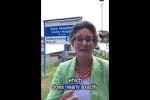I am very grateful to my hon. Friend the Member for East Worthing and Shoreham (Tim Loughton) for securing this debate. May I also take this opportunity to thank him formally in the House for so willingly and adeptly taking on the chairman role of the all-party group for Yemen earlier this year when I was made Parliamentary Private Secretary to the Department for International Development?
Members will know that Yemen is an issue very close to my heart. I was born in the former protectorate of Aden and have always felt closely connected with the country, which is beautiful, ancient and culturally rich. I was first elected in 2015 and often spoke on Yemen in that Parliament. It is truly tragic how little has changed since then. In fact, despite the efforts of the UK, the UN and many others, the political, economic and humanitarian situation has deteriorated. My hon. Friend has already laid out the humanitarian need and I know others will do so, so I would like to concentrate on the political situation, which is as difficult as ever.
I am hopeful that there are small signs of progress. The Riyadh agreement in December 2015 saw a ceasefire and a move towards a unified Government in the south. Although the Southern Transitional Council pulled out of that deal earlier this year, I am glad that that has been reversed and efforts are now moving in the right direction. This is a really important step and we must praise the efforts of the Saudis and the Emiratis to bring it about.
The other major parties are the Houthis, and I welcome rumours that the Saudi Government may be holding talks with them as well. There are many sides in this war and only by engaging with all of them can we bring about a lasting peace. With that in mind, I am glad that UN special envoy Martin Griffiths recently held talks with Iranian diplomats in Geneva. Working with Iran will be crucial in bringing the Houthis on board. The UK Government, the UN and MPs in Parliament must continue to support Martin Griffiths in his efforts to promote his joint declaration. This aims for a national ceasefire, humanitarian and economic measures, and the resumption of the comprehensive political process. It provides a framework for peace in Yemen, an olive branch that various factions must now reach out and grasp.
I would like to end by talking briefly about an ecological disaster waiting to happen off Yemen’s shores. The Safer oil tanker is anchored about 37 miles off Hodeidah in the Red sea. It has received virtually no maintenance since the start of the war in 2015. On board, there is just over 1 million barrels of crude oil and experts warn of an environmental catastrophe if the vessel breaks apart. The marine ecology of the Red sea would need over 30 years to recover. The Yemeni environmental group, Holm Akhdar, estimates that more than 126,000 people working in the fishing industry could lose their livelihoods. That would only add to the humanitarian crisis.
To make the issue all the more pressing, recent photos appear to show water entering the Safer, which could cause it to sink or explode. The Houthis absolutely must keep their promise and, without delay, allow UN teams to access the vessel and secure its cargo. Currently, the Houthis are refusing, because they want the rights to sell the oil, but that cannot be allowed to stand when the environmental stakes are so high—the oil is likely to have gone off and lost most of its value in any case. The international community must urgently press the Houthis to give the UN access. I welcome the fact that the UK Government have already done so, and I urge them to keep up the pressure.
This has all been allowed to go on for far too long. I welcome the debate as a chance to raise the profile of this issue, and I hope that by doing so we can help to move things in the right direction and start getting Yemen back on its feet.

